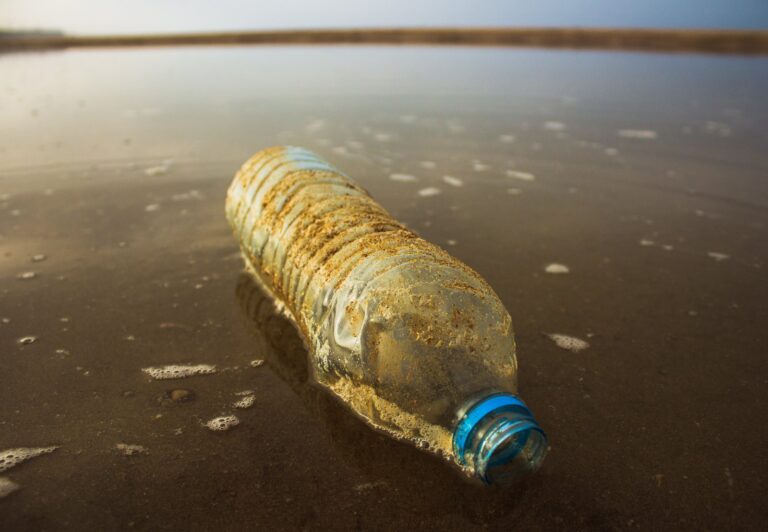Kirkland Water is a popular brand known for its affordable and quality bottled water products. It is a private label brand owned and distributed by Costco Wholesale Corporation. The brand offers a wide range of water products that cater to different preferences and needs.
Kirkland Water sources its water from various locations across the United States. The company ensures that the water goes through a rigorous filtration and purification process to meet the highest safety and quality standards. As a result, Kirkland Water consistently provides clean and refreshing water to its consumers.
Types of Kirkland Water Products
Kirkland Water offers several types of bottled water products to suit individual preferences:
1. Kirkland Signature Premium Drinking Water: This is the flagship product of the Kirkland Water brand. It is purified water that goes through a rigorous filtration process to remove impurities and ensure the highest quality.
2. Kirkland Signature Flavored Sparkling Water: For those who prefer a little fizz and flavor, Kirkland Water offers flavored sparkling water. These beverages are lightly carbonated and come in various refreshing flavors, such as black raspberry, peach nectarine, and lemon citrus.
3. Kirkland Signature Electrolyte Water: Kirkland Water also offers electrolyte-infused water, which is designed to replenish electrolytes lost during physical activity. This water is an excellent choice for athletes or anyone looking for hydration with added benefits.
4. Kirkland Signature Vita Rain Enhanced Water Beverage: This line of water beverages is infused with vitamins and flavors to provide a refreshing and nutritious drink option. These beverages come in delicious flavors like dragonfruit and kiwi strawberry.
Whether you prefer plain purified water or enjoy flavored and enhanced options, Kirkland Water has a product to meet your needs.
Fluoride Content in Kirkland Water
A. Examination of Kirkland Water Labels
Kirkland is a popular brand known for its wide range of products, including bottled water. Many people are curious about the fluoride content in Kirkland water and whether it provides this important mineral. To determine the fluoride content, it is essential to examine the labels of Kirkland water bottles.
A thorough examination of the labels reveals that the fluoride content in Kirkland water varies depending on the specific type of water being purchased. Some Kirkland water products may contain fluoride, while others may not. The fluoride content is usually indicated on the label, allowing consumers to make an informed decision.
B. Testing and Analysis of Fluoride Levels
In addition to examining the labels, it is also important to test and analyze the fluoride levels in Kirkland water. Independent testing can provide accurate and reliable information about the fluoride content in the water. By conducting such tests, consumers can have a clearer understanding of the fluoride levels in Kirkland water and whether it meets their specific needs.
It is recommended that individuals interested in the fluoride content of Kirkland water consult reliable sources and conduct further research. Testing and analyzing the fluoride levels can provide more precise information about the specific product being considered.
Fluoride is an essential mineral that plays a significant role in maintaining healthy teeth and preventing tooth decay. Understanding the fluoride content in Kirkland water can help individuals make informed decisions about their oral health and overall well-being.
The Debate Surrounding Fluoridated Water
Fluoridated water has been a topic of debate for many years. While some argue that it is a crucial public health measure, others have expressed concerns about its potential risks. Here are some key arguments on both sides of the debate:
A. Arguments in Favor of Fluoridation
1. Dental Health Benefits: Proponents of fluoridated water argue that it helps prevent tooth decay and improve oral health, especially in children. Fluoride strengthens tooth enamel, making it more resistant to acid attacks.
2. Cost-Effectiveness: Fluoridation of water is considered a cost-effective way to improve dental health. It reaches a large population, including those who do not have access to dental care or cannot afford preventive measures like fluoride treatments.
3. Community-wide Impact: Fluoridation is a community-wide approach to improving oral health. It benefits everyone, regardless of age, income, or access to dental care.
B. Concerns and Criticisms Against Fluoridation
1. Lack of Consent: Some individuals argue that fluoridation infringes on personal choice and medical consent since people are exposed to fluoride without their explicit consent.
2. Potential Health Risks: Critics raise concerns about potential health risks associated with long-term exposure to fluoride. These include dental fluorosis, skeletal fluorosis, and potential neurotoxic effects.
3. Ethical Concerns: Fluoridation raises ethical questions about mass medication and the right to informed consent. Some argue that individuals should have the freedom to choose whether or not they consume fluoridated water.
The debate surrounding fluoridated water is complex and ongoing, with arguments and concerns from both sides. It is important for individuals to stay informed and make their own decisions based on their values and the available scientific evidence.
For more information about fluoridated water, you can visit this link.
Fluoride is a mineral that is beneficial for dental health and plays a crucial role in preventing tooth decay. Here are some of the key benefits of fluoride for dental health:
A. Benefits of Fluoride for Dental Health
- Strengthens Tooth Enamel: Fluoride helps to strengthen tooth enamel, which is the outer layer of the tooth. Strong enamel is less prone to decay and can better withstand acid attacks from bacteria and sugary foods.
- Remineralizes Teeth: Fluoride can remineralize areas of the tooth that may have been weakened by acid erosion. This process helps to repair early stages of tooth decay and prevent cavities from forming.
- Reduces Acid Production: Fluoride inhibits the production of acid by bacteria in the mouth. By reducing acid levels, fluoride helps to create an environment that is less favorable for cavity-causing bacteria.
- Protects Against Tooth Sensitivity: Fluoride can help to reduce tooth sensitivity by strengthening the protective layer of enamel over the sensitive dentin layer of the tooth.
Role of Fluoride in Preventing Tooth Decay
Tooth decay occurs when bacteria in the mouth produce acids that erode the tooth enamel. Fluoride plays a significant role in preventing tooth decay by:
- Reversing Early Stages of Decay: Fluoride can reverse the early stages of tooth decay by remineralizing areas of the enamel that have been weakened by acid attacks.
- Inhibiting Acid Production: Fluoride inhibits the production of acid by bacteria, reducing the risk of acid erosion and tooth decay.
- Enhancing Tooth Resistance: Fluoride strengthens the tooth enamel, making it more resistant to acid attacks and reducing the likelihood of cavities.
It is worth noting that the presence of fluoride in drinking water can vary depending on the source. While some water sources naturally contain fluoride, others may require supplementation. In the case of Kirkland water, it is important to check the specific product information or contact the manufacturer to determine if fluoride is added to their water.
Kirkland Water and Fluoridation
A. Does Kirkland Water Contain Added Fluoride?
There have been questions regarding whether Kirkland water contains added fluoride. The answer is no, Kirkland water does not contain added fluoride. The water is sourced from various locations, and the natural fluoride levels in these sources may vary. However, as of the writing of this article, Kirkland water does not undergo additional fluoridation processes.
B. Natural Fluoride Levels in Kirkland Water Sources
The natural fluoride levels in Kirkland water sources can vary depending on the geological composition of the area. Natural fluoride is present in groundwater sources due to the dissolution of minerals like fluorite, apatite, and mica. The exact fluoride levels in Kirkland water can be determined by testing the specific water sources.
It is important to note that the natural fluoride levels in Kirkland water are within the recommended range established by regulatory authorities for drinking water. Fluoride is a commonly occurring element in natural water sources and is considered safe within established guidelines. However, it is always a good idea to consult with your dentist or healthcare professional for personalized advice regarding fluoride intake.
For more information on fluoride and its role in dental health, you can visit this Wikipedia page.
Understanding the Importance of Fluoride in Drinking Water
A. Current Recommendations for Fluoride Intake
Fluoride is a mineral that plays a crucial role in maintaining oral health. It helps to strengthen tooth enamel, making it more resistant to decay. According to the American Dental Association, the current recommendations for fluoride intake are as follows:
- For infants younger than 6 months: No fluoride supplementation is necessary, as most infant formulas already contain an optimal amount of fluoride.
- For children aged 6 months to 3 years: If the child’s primary drinking water source does not contain fluoride at optimal levels, fluoride supplements may be recommended by a dentist or pediatrician.
- For children aged 3 years and older: Children should use fluoride toothpaste with a concentration of at least 1000 parts per million (ppm) of fluoride. Parents should supervise brushing to ensure that children do not swallow the toothpaste.
- For adults: Fluoride toothpaste is recommended for effective oral hygiene and cavity prevention.
B. Impact of Fluoridated Water on Oral Health
Water fluoridation is a public health measure that involves adding fluoride to the public water supply in order to provide a constant and consistent source of fluoride to the community. The Centers for Disease Control and Prevention (CDC) considers water fluoridation to be one of the top ten public health achievements of the 20th century.
Research has consistently shown that drinking fluoridated water can significantly reduce the incidence of tooth decay and cavities. According to the CDC, communities with fluoridated water can experience up to a 25% reduction in cavities among children and adults. This is especially beneficial for those who may not have access to regular dental care or who may not practice optimal oral hygiene.
While the majority of public water supplies in the United States are fluoridated, it’s important to note that not all bottled water brands contain fluoride. Kirkland water, for example, does not contain fluoride. Therefore, individuals who primarily consume bottled water without fluoride may not be receiving the optimal amount of fluoride for maintaining good oral health.
It’s always best to consult with a dentist or healthcare provider to ensure that you are receiving the appropriate level of fluoride for your oral health needs. They can provide guidance on fluoride supplementation and help you maintain a healthy smile.
Conclusion
A. Final Verdict on Fluoride Content in Kirkland Water
After careful analysis and research, the final verdict is that Kirkland water does not contain fluoride. This means that if you are looking for a water source that provides natural fluoride, Kirkland water may not be the best choice for you. However, if you prefer fluoride-free water or have specific dietary considerations, Kirkland water can still be a suitable option.
It is important to note that the absence of fluoride in Kirkland water does not necessarily imply that it is inferior. Different individuals have varying preferences and requirements when it comes to their water consumption. Some people may prefer water with fluoride for its dental health benefits, while others may choose fluoride-free options due to personal beliefs or health reasons.
B. Considerations for Choosing Water with or without Fluoride
When deciding whether to choose water with or without fluoride, there are a few factors to consider:
1. Dental Health: Fluoride has been shown to help prevent tooth decay and promote oral health. If maintaining strong teeth and preventing cavities is a priority for you, water sources that naturally contain fluoride or using fluoride products may be beneficial.
2. Dietary Preferences: Some individuals may prefer to limit their fluoride intake due to dietary considerations. For example, individuals who consume a high amount of fluoride from other sources may opt for fluoride-free water to balance their overall fluoride intake.
3. Health Concerns: In certain situations, individuals with specific health concerns or conditions may be advised to avoid fluoride or limit their intake. It is essential to consult with a healthcare professional to determine the appropriate fluoride intake for your specific health needs.
Ultimately, the choice between water with or without fluoride is a personal decision that should be based on individual preferences, dietary considerations, and health factors. It is always recommended to consult with healthcare professionals and review available information to make an informed decision about your water consumption.




